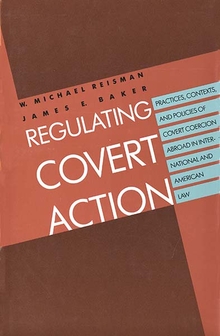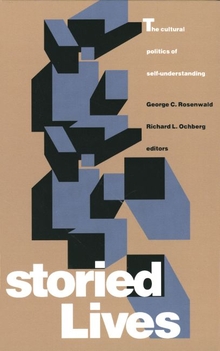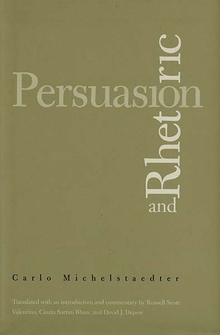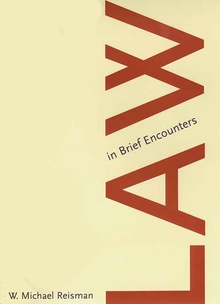Regulating Covert Action
WARNING
You are viewing an older version of the Yalebooks website. Please visit out new website with more updated information and a better user experience: https://www.yalebooks.com
W. Michael Reisman and James E. Baker
Covert activity has always been a significant element of international politics. When it has served their interests, governments have secretly disseminated propaganda in other countries, manipulated foreign economies, and abetted coups against their adversaries. What are the circumstances, if any, in which it is lawful, under international law or United States law, to resort to covert action either directly or through local proxies? When is it right to do so?
This book is the first to assess the lawfulness of covert action under United States and international law and to face candidly the implications for democratic states that covert operations pose. Michael Reisman and James E. Baker identify different types of covert actions, discussing a variety of cases that include the Trujillo assassination in 1961, the Rainbow Warrior in 1985, and the raid on Libya in 1986. After explaining the complex operations of the international legal system, they explore trends in decision making and the conditions that accounted for them—whether the covert operations were proactive, defensive, or reactive. They examine in detail the procedures followed in the United States to authorize and oversee covert activity and propose guidelines for political leaders who may contemplate using covert techniques. An appendix reviews twenty years of allegations of covert aggression brought to the attention of the United Nations Security Council.
W. Michael Reisman is Wesley Newcomb Hohfeld Professor of Jurisprudence at the Yale Law School. James E. Baker is Attorney Adviser in the Office of the Legal Adviser, Department of State.
"A sophisticated and comprehensive framework for assessing the legal quality of covert operations against foreign countries. Rich in detail, the work is one of originality and reliable scholarship. The program of policy guidelines that concludes the book will be received with interest in many circles."—Richard A. Falk
"This extremely interesting book faces squarely the hard moral and political questions concerning covert action, democracy and foreign policy."—Ambassador Jeane J. Kirkpatrick
"This sophisticated book examines governmental actions toward which many will be opposed or ambivalent, but that are still likely to be undertaken even in the new world order."—Andrew J. Pierre, Foreign Affairs
"The authors provide a most comprehensive and authoritative study of the international and domestic US legal aspects of covert operations. . . . The book is thoroughly documented and well written."—Choice
"A legalistic, practical and normative (but not emotional) appraisal of covert action. . . . [A] useful contribution to intelligence studies."—Loch K. Johnson, Intelligence and National Security
"I would recommend that anyone with a serious interest in intervention, especially covert intervention, take a look at this provocative volume."—Frances V. Harbour, American Political Science Review
"This book deals with complex material and covers a lot of ground, but it is mandatory reading for those wishing to get to the heart of the question of managing covert activities."—O. Peter St. John, Canadian Journal of Political Science
"This is a valuable book, filling a surprising gap in the literature and containing some original insights. It underlines the considerable contribution that the expanding field of national security law is making to the study of secret service activities."—Richard J. Aldrich, Arms Control
Publication Date: April 15, 2011









